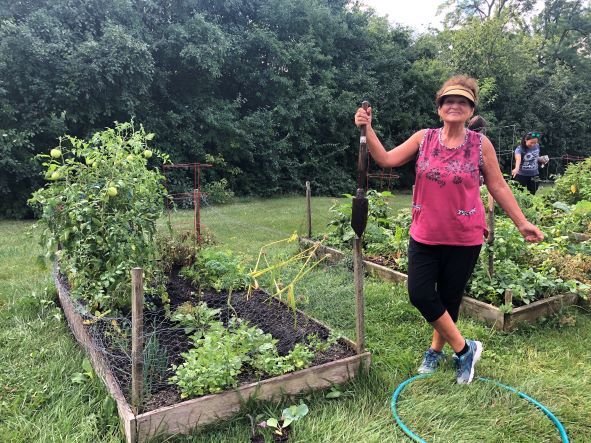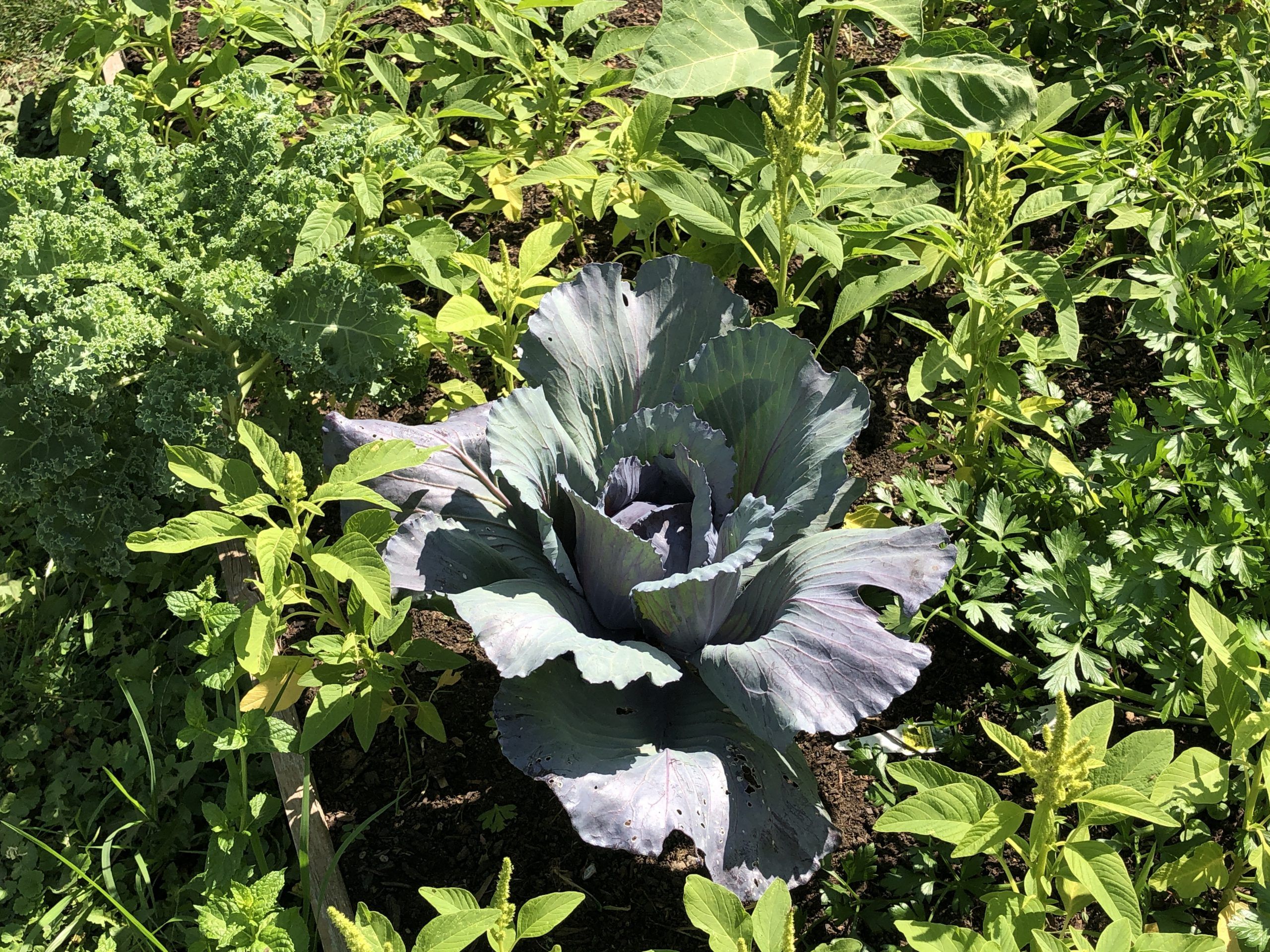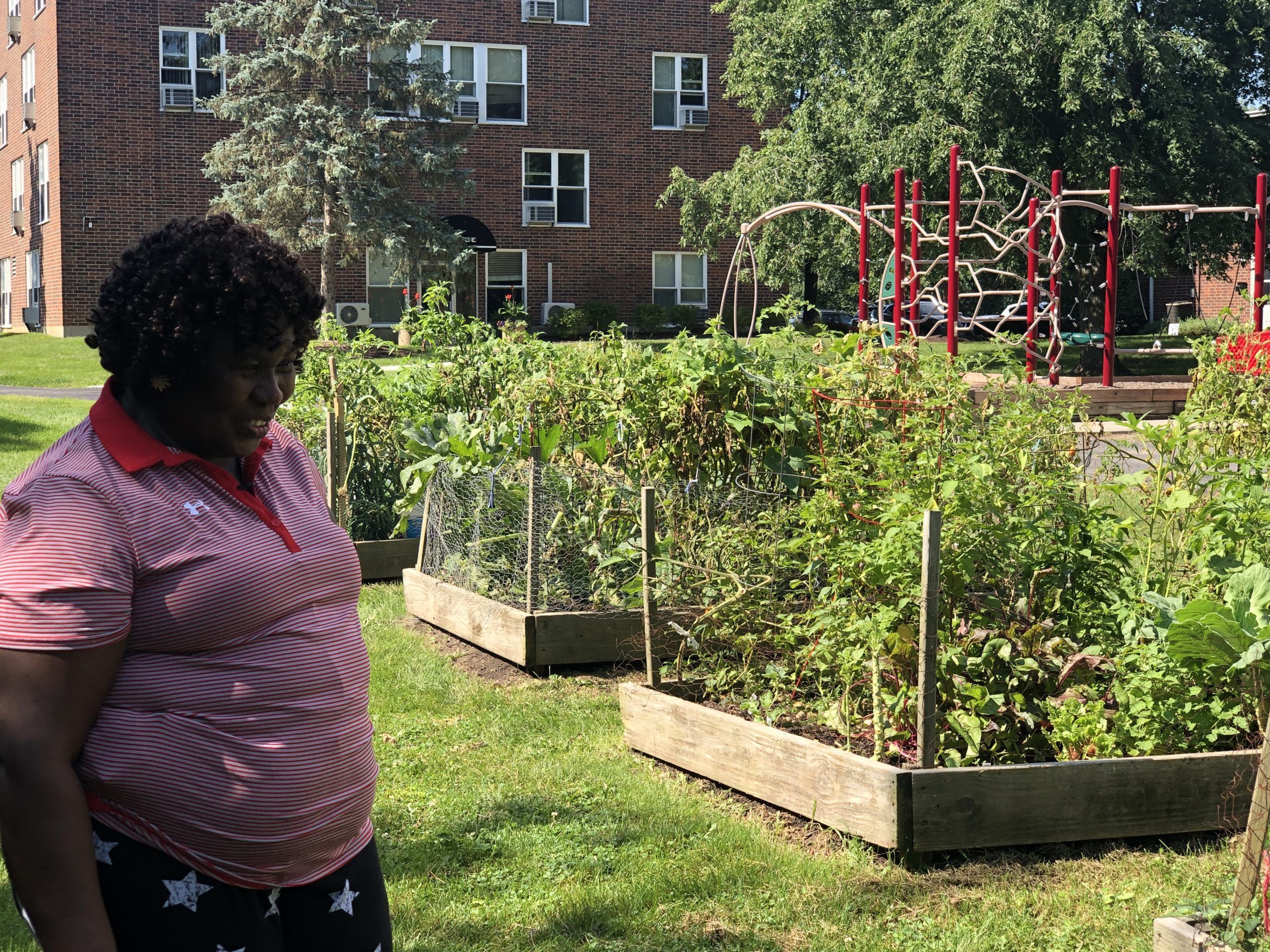It’s called the “World Community Garden”. And, the name might surprise you for being located in Wheaton. But, it fits. This community garden at the Marian Park Mercy Housing site is home to 14 gardeners from 7 countries, speaking 7 native languages and growing varieties not often found in your typical grocery store.
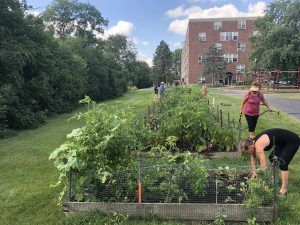
The GardenWorks Project began a partnership with the Marian Park community in 2017 with the installation of a 5 bed system intended to serve low income and elderly residents desiring to grow their own produce and, according to Resident Service Coordinator, Bethany Atchison, “empower and nourish bodies and souls.” “Our community has a large population of refugee families that have moved often during their first years here in the United States. It is a permanent residence with the opportunity to garden, which is often the first time since they have been at home. Gardening gives them something familiar in a very foreign country.” The program has since grown, expanding the site to 14 beds at two locations on the Mercy Housing-owned campus.
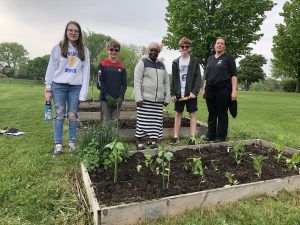
Each GardenWorks Project garden site is assigned a volunteer lead to guide the gardeners through the process and support them throughout their growing journey. After several years coaching individual families, Lisa was thrilled for the opportunity to become a lead at Marian Park’s community gardens. As the spring season began, so did her relationship with the garden residents. “One of my favorite ways to get to know someone is to ask them what they like to grow and what they like to eat. The stories the residents shared about some of their favorite vegetables and how they like to prepare and eat them were full of wisdom.” A gardener from Africa taught Lisa and the other gardeners that a plant thought to be a weed was actually African spinach, a prized delicacy in her culture, and were planted with purpose, as were sweet potato vines and their edible leaves.
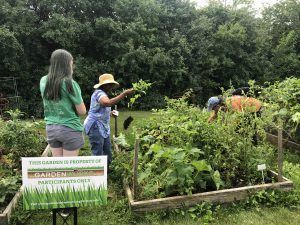
GardenWorks recognizes that food is important, not only for physical health, but their mental and emotional well being. Food connects us to each other and our family history. “We do our best to honor the significance food has in someone’s life and cater to cultural palatability” notes Executive Director, Jeannie Iseman. GardenWorks sources seeds for specific vegetables at client request, such as a special variety of eggplant for Sarah, which reminded her of Liberia, which can be eaten as raw fruit. “Volunteers like Lisa help us honor these needs of our clients”, Jeannie notes, “by growing special requested varieties at home from seed, so that we can provide garden-ready seedlings to our participants”.
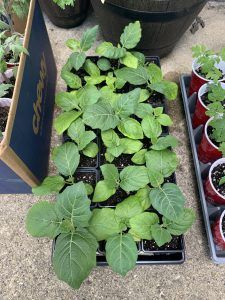
The gardeners at the “World Community Garden” have honored the name by expanding the benefits of their garden into the community. They share produce, cooking tips, recipes, and even finished dishes with their neighbors and even with their community food pantry. They share tools, seedlings, plants, vegetables, and advice with one other, Marian Park staff, and interested residents. They introduce the community to a variety of different varieties of vegetables and growing techniques. Their neighbors at St Francis High School – volunteer students from the Ministry team – have also come to help them refresh their garden beds.
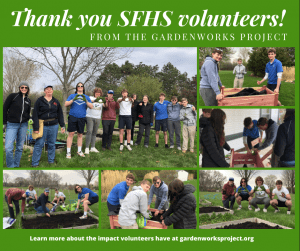
Throughout this year’s growing season, different people would visit with Lisa at the gardens. “One time, someone insisted on sharing a few of their beautiful tomatoes with me. Another time, I talked about the collard greens that a resident remembered from her childhood. Yet another time, a resident shared with me how she met an “Auntie” from her home country who was fascinated with the sweet potato vines growing in her garden bed, and how she shared them out of respect.” Lisa got to hear how they were able to share some of the produce with their adult children when they visited, how neighbors who might not have previously known each other were now sharing green tomatoes to pickle. We talked about which okra was too far gone to eat, but was almost ready to be harvested for seed, how the eggplant was the kind a resident remembered from her country, and how excited she was to save the seeds and try to grow them again next year.
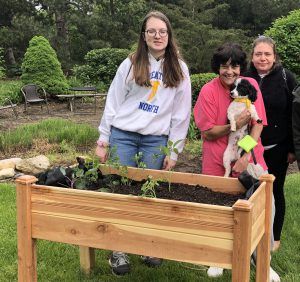
The World Community Garden has opened up a world of possibility for this community. It’s brought these gardeners joy and pride, helped build connections and relationships, fostered dignity and a sense of empowerment. “Even now, as the growing season winds down”, Lisa notes, “I feel a sense of community created by a few wooden boxes and piles of soil, a community I am so grateful to have been a small part of.” As we prepare the gardens for winter, we are already looking forward to next season. We invite you to join us – volunteer at a community garden and see what worlds open up for you, too.



